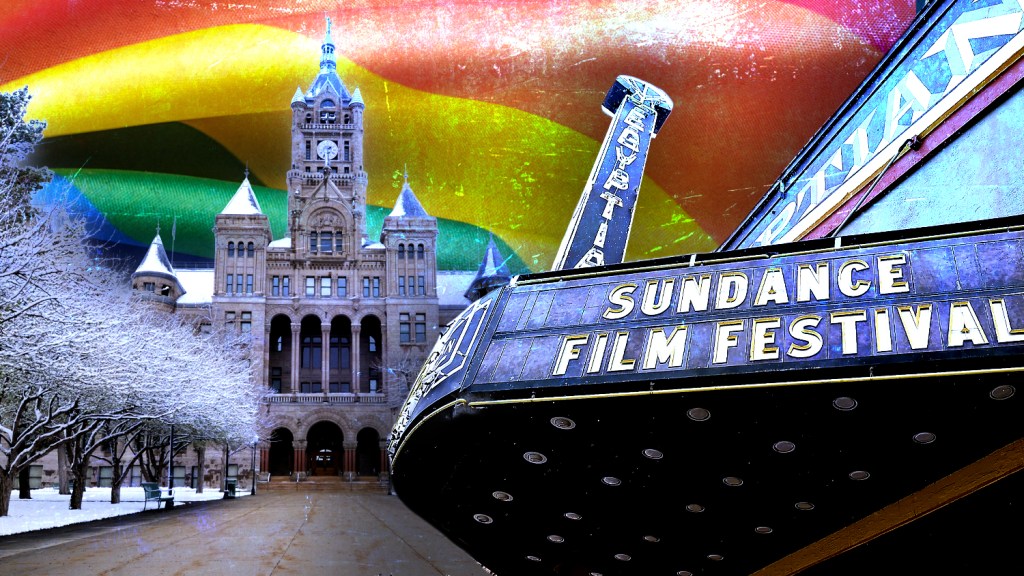Will Utah’s Anti-Pride Bill Dampen the Spirit of Sundance?
As Utah’s legislature sends an anti-Pride flag bill to the governor, the arts community is buzzing with concern regarding the potential repercussions for one of the state’s most cherished events: the Sundance Film Festival. Known for its commitment to inclusivity and creativity, Sundance has long been a sanctuary for artists, filmmakers, and activists who champion diverse voices and narratives. However, the passage of this controversial legislation raises questions about whether the festival can maintain its inclusive spirit in the face of political challenges. This article delves into the implications of the anti-Pride bill and explores the potential impact on the Sundance Film Festival.
The Anti-Pride Bill: An Overview
In recent months, Utah’s legislature has been at the forefront of heated debates regarding LGBTQ+ rights, leading to the introduction of the anti-Pride flag bill. This legislation aims to restrict the display of Pride flags and other symbols associated with LGBTQ+ pride in public spaces. Proponents of the bill argue that it seeks to uphold traditional values, while opponents contend that it stifles freedom of expression and undermines the rights of the LGBTQ+ community.
The bill’s passage has sparked outrage among activists and allies who view it as an attack on the very essence of inclusivity. Critics argue that such measures do not align with the values of acceptance and diversity that many see as fundamental to the fabric of Utah’s culture and identity.
Impact on Sundance: A Festival of Inclusion
The Sundance Film Festival, founded by Robert Redford in 1981, has become synonymous with independent cinema and artistic expression. Each January, filmmakers and audiences converge in Park City, Utah, to celebrate innovative storytelling that often tackles social issues, including those relevant to the LGBTQ+ community. The festival has a longstanding reputation for championing films that reflect diverse perspectives, making it a crucial platform for marginalized voices.
As concerns mount over the anti-Pride bill, many wonder how this legislative action will affect the festival’s atmosphere and programming. Will filmmakers feel comfortable sharing their stories, particularly those that explore LGBTQ+ themes? Will attendees feel safe and welcomed in an environment that may be perceived as hostile?
Voices from the Community
Artists, filmmakers, and festival-goers have taken to social media and public forums to express their concerns. Many believe that the anti-Pride bill could lead to a chilling effect, where creatives may self-censor their work out of fear of backlash. This sentiment is echoed by prominent figures in the film industry who have historically used platforms like Sundance to address pressing social issues.
For example, acclaimed filmmaker and LGBTQ+ advocate, Ryan Murphy, voiced his apprehension about the bill’s implications. He stated, “Art thrives in an environment of freedom. When we start restricting voices, we hinder creativity and innovation. Sundance has always been a beacon of hope for those who dare to tell their stories.” His insights reflect a broader concern that the anti-Pride bill could stifle artistic expression.
A Festival of Resilience
Despite these challenges, many believe that the spirit of Sundance will prevail. The festival has a history of resilience in the face of adversity. Past events have seen filmmakers and attendees unite to support one another, creating a strong sense of community and solidarity.
Moreover, the festival organizers have a track record of championing inclusivity. They have previously implemented initiatives aimed at elevating underrepresented voices, including LGBTQ+ filmmakers. In response to the anti-Pride bill, it’s likely that Sundance will double down on its commitment to celebrating diversity, possibly even showcasing more films that address LGBTQ+ issues.
What Can Be Done?
As the festival approaches, the arts community is mobilizing to advocate for inclusivity and support for LGBTQ+ rights. Here are some actions being considered:
- Advocacy and Awareness: Artists and activists are using their platforms to raise awareness about the implications of the anti-Pride bill and to rally support for LGBTQ+ rights.
- Partnerships: Collaborations between the festival and LGBTQ+ organizations can help amplify marginalized voices and ensure their representation within the festival programming.
- Community Engagement: Engaging local communities to foster dialogue around inclusivity and acceptance can play a crucial role in transforming perceptions and attitudes.
Reaffirming Commitment to Diversity
The Sundance Film Festival has an opportunity to reaffirm its commitment to diversity and inclusion in the face of adversity. By prioritizing the representation of LGBTQ+ stories, the festival can not only demonstrate its stance against discrimination but also inspire other events and organizations to follow suit.
In doing so, Sundance can send a powerful message that art transcends political boundaries and that creativity flourishes in environments where diversity is celebrated. This approach may even invigorate the festival-goers, fueling a sense of solidarity that can counteract the divisive nature of the anti-Pride bill.
Looking Ahead: The Future of Sundance
As we look toward the future, it remains crucial for the Sundance Film Festival to navigate these political challenges with grace and determination. The ongoing discourse surrounding the anti-Pride bill highlights the importance of standing firm in the face of adversity. While the bill may pose challenges, it also presents an opportunity for growth, dialogue, and resilience within the arts community.
Ultimately, whether Utah’s anti-Pride bill dampens the spirit of Sundance remains to be seen. However, one thing is clear: the festival’s legacy as a champion of diverse voices and narratives is worth fighting for. By continuing to support and uplift marginalized communities, Sundance can ensure that its spirit remains unbroken, fostering an environment where creativity thrives regardless of political climates.
In conclusion, while the anti-Pride bill poses significant challenges, the Sundance Film Festival can emerge stronger and more resilient than ever by reaffirming its commitment to inclusivity and diversity. The festival’s ability to adapt and respond to these political challenges will be a testament to the enduring power of art and community in the face of adversity.
See more CNET Live

